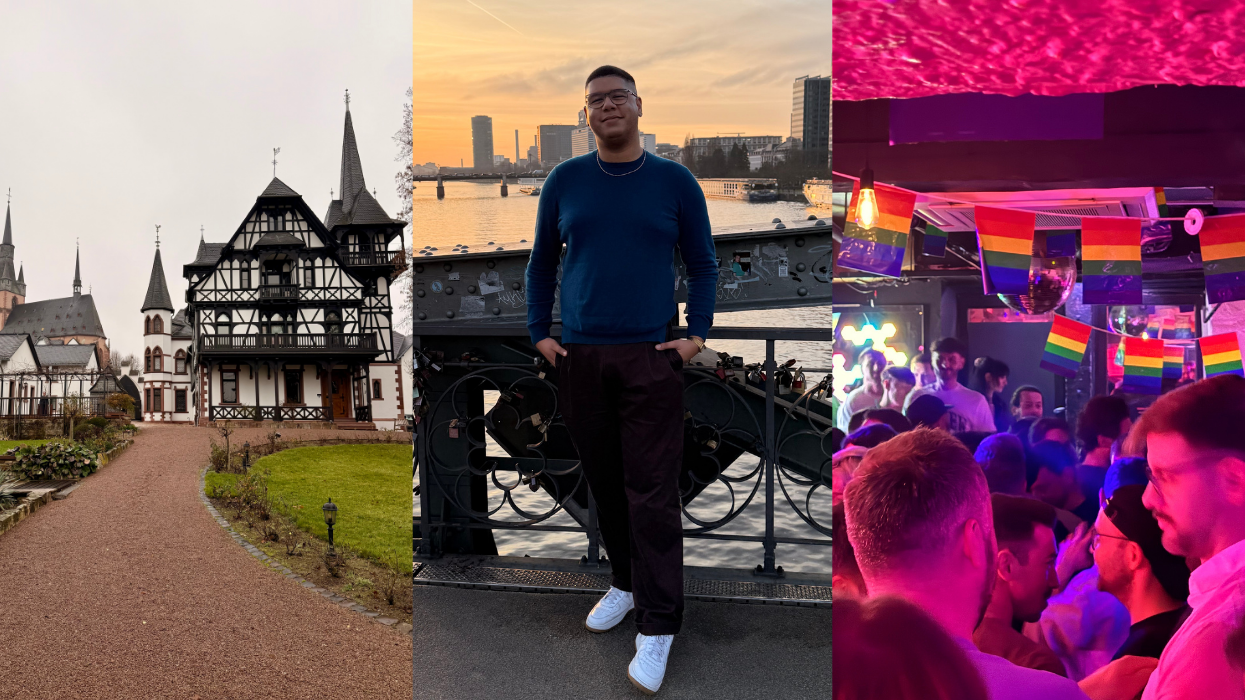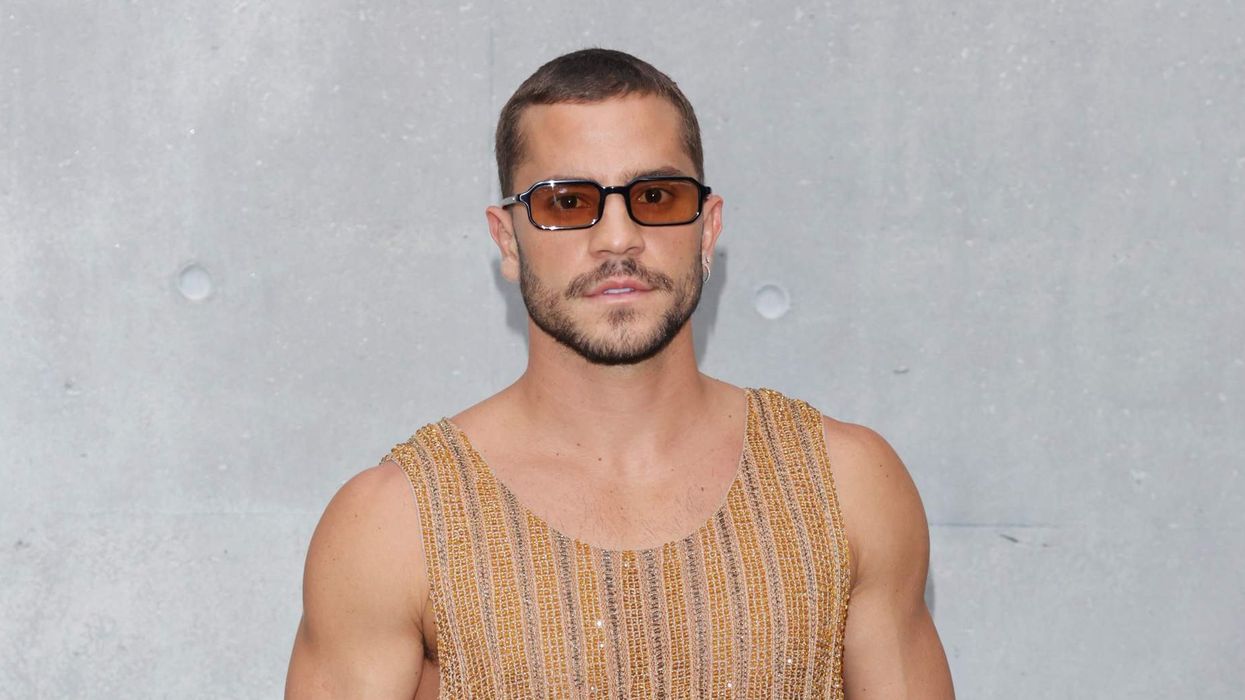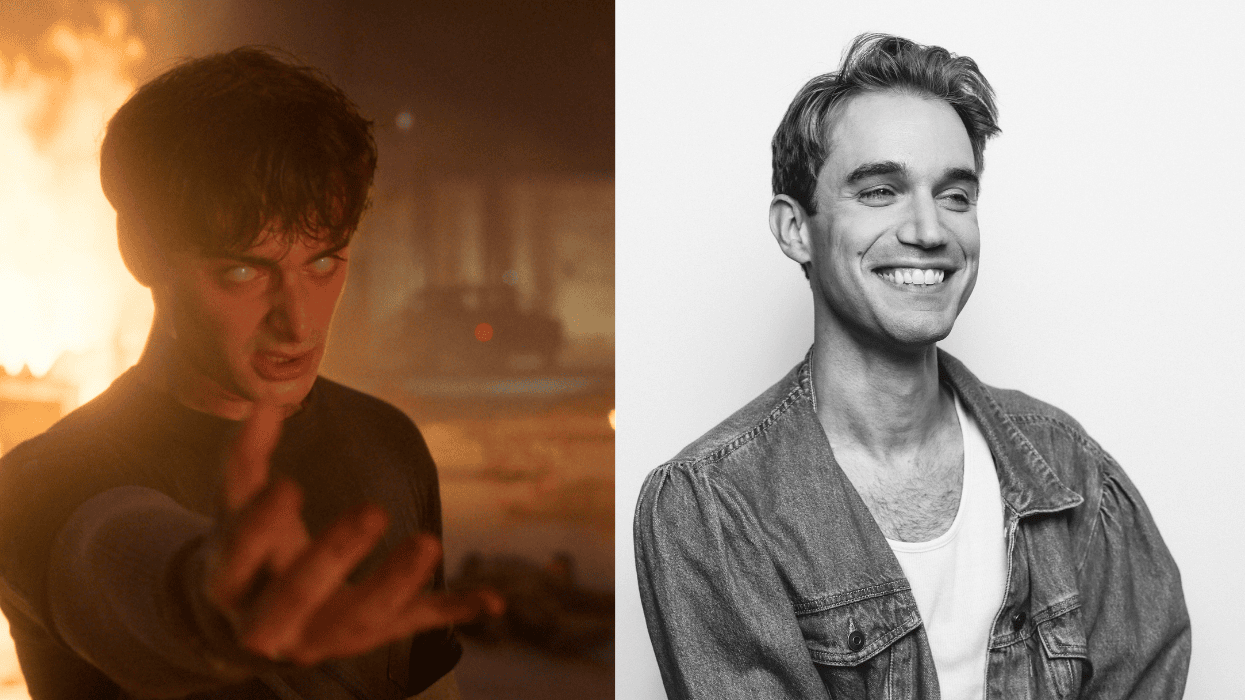What stories get told and what stories do not? This seems to be the predominant question of our time, a period of upheaval when we are glimpsing the profound possibilities of a culture in which it's no longer axiomatic to step aside for straight white men. That's not to say that some of those men have not worked hard, or deserved their success, or that they haven't had beautiful gifts to bestow -- just that they've had a tendency to suck up the oxygen in the room. Their stories have had preference in a society that takes their privilege for granted. When we describe queer identity, or any other identity, as niche or marginal, we're capitulating to the idea that our lives are less central, and therefore less valid. If you want to stand in the middle of the room, you have to first believe you belong there.
Related | Andrew Garfield on Stage Fright, Spirituality, and His Role in Broadway's Angels in America
For much of history our stories have been told obliquely, in works with queer subtexts that flew over the heads of their straight audiences--think of Cole Porter's songbook, or the plays of Tennessee Williams--because to do otherwise would have doomed the storytellers to failure, or worse. One of the things that made Angels in America so exciting when it arrived, at the height of the AIDS pandemic, was that it announced Tony Kushner as a queer playwright who was not interested in the old masquerade. Angels was angry, defiant, and eloquent, and made no allowances for the squeamish or delicate. It spoke to straight audiences, but primarily through queer characters. Kushner won two Tonys and a Pulitzer by refusing to stand to one side (in this he was inspired, in part, by Larry Kramer, an equally gutsy chronicler of AIDS and a pioneer of today's queer activism).
Angels began life in 1985 as a dream in which Kushner saw an angel descending from the caved-in ceiling of a dancer friend who'd recently died of AIDS (he wrote it down as a poem the next morning, titling it "Angels in America"), but it was many years before that fragment blossomed into the iconic play we know today, receiving its premiere in San Francisco in 1991. Now it's back, fresh from a celebrated run at London's National Theatre, and invoking inevitable parallels between the Reagan '80s in which the story is set and the present moment, with a borderline psychotic president who seems incapable of compassion. Given the cynical state of our political life, the comparison feels apt. The culture wars of the '80s that we supposed were vanquished under Obama are as alive and feverish as ever. Again, tax cuts reward the rich at the expense of the poor.
Yet there is at least one fundamental difference. The struggle in the 1980s felt existential -- gay society, as it was, stood on the precipice of extinction. In that low and miserable decade, nobody seemed to care. Such complacency seems far away in 2018, not least because much was learned from those queer men and women who refused to be made invisible while their friends died around them. The seeds for today's cultural revolution, of #MeToo and #BLM, have been planted at various critical moments throughout the 20th century -- with the civil rights movement of the 1960s, and the feminist movement of the 1970s, but also in the 1980s, when organizations like the Sisters of Perpetual Indulgence and ACT UP refused to acquiesce to the belittling and defaming of the gay community.
Related | Andrew Garfield is Among the Angels For His Broadway Return
One of my favorite moments in managing editor R. Kurt Osenlund's March issue Angels in America cover story is when Tony Kushner talks admiringly of the way in which Andrew Garfield embraces his character's flamboyance. "There's a certain misunderstanding that queenly behavior has to do with a kind of abjectness or weakness," he says. "But, of course, the opposite is true. It's a gesture of real power. It is a refusal of hiding." As a typical gay teen of the '80s, who forced himself to walk as stiffly as possible for fear of giving myself away, there is something both moving and poignant in seeing a new generation of queer youth embrace the very thing that kept so many of us closeted and in fear. As Kushner says, "There's nothing wimpy about behaving like Judy Garland or Katharine Hepburn." It took a generation of queer storytellers, from Kushner to RuPaul, to help change that narrative. They didn't step aside for anyone.






























